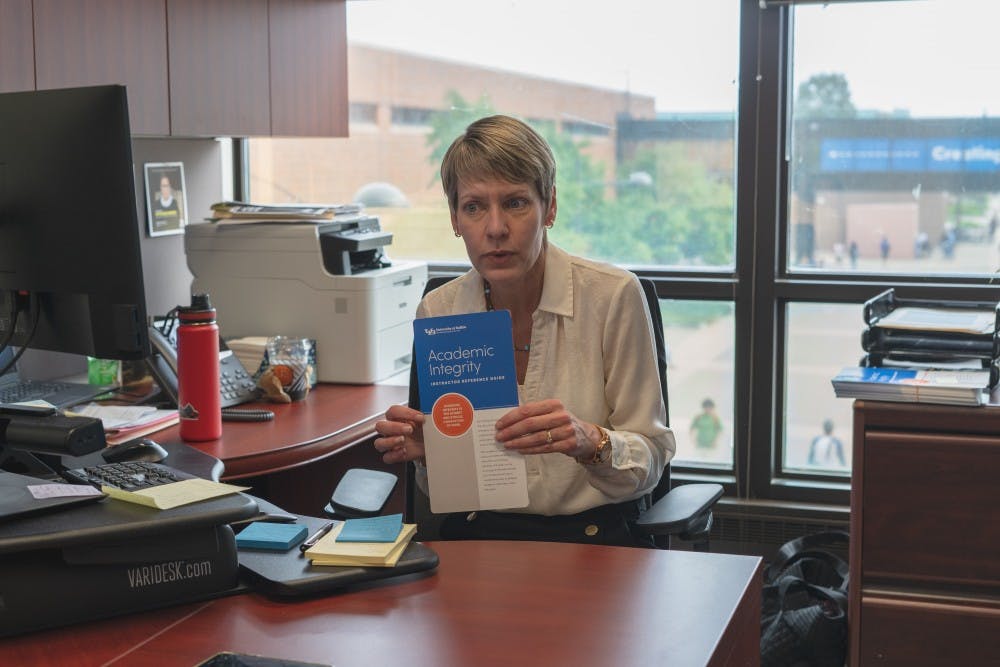Undergraduate students can now remediate accusations of academic dishonesty before UB places them on their record with UB’s new academic integrity policy.
The new policy and the two-person Office of Academic Integrity came out of a campus-wide survey and four-year discussion between a 28-member committee of faculty, staff and students, co-chaired by now-retired Senior Associate Dean of Undergraduate Education Elaine Cusker and environmental engineering professor James Jensen.
Roughly 4,000 students and 400 faculty members took part in the campus-wide survey and results indicated they wished there was a centralized space to help support and advocate for academic integrity, according to Kelly Ahuna, director of the Office of Academic Integrity. Prior to this year, there were no centralized records on the number of students caught cheating, since they were handled separately through each department.
“[Under the old policy], students and faculty were educated inconsistently and sporadically,” Jensen wrote in an email. “The UB culture at the time espoused the values of academic integrity, but with uneven understanding, enforcement and limited commitment.”
Jensen also wrote “record-keeping was spotty,” as UB’s numbers on infractions only applied to the “most egregious cases” –– such as selling assignments or stealing an exam from an instructor’s office –– at the highest UB level.
The new policy allows undergraduates who are first-time offenders and who don’t commit an “egregious offense,” to expunge their record of the offense through a remediation process with the Office of Academic Integrity.
“This provides an opportunity for students who have made a mistake to learn more about why integrity is important at UB,” Ahuna said. “They then have a chance to see how it works and how they can make sure they’re staying honest and get that off their record.”
The remediation process is a four-module online course in UBLearns that covers why academic integrity is an important university value, how to avoid acts of academic dishonesty and provides students with strategies on how to achieve success with honesty.
However, any students with infractions prior to the new policy must still follow the old policy. Graduate students are also not able to expunge their records for academic dishonesty, since “they are held to a higher standard upon entry,” according to Ahuna.
The past policy was “multi-stepped:” if someone accused a student of cheating, the student would meet with their professor, who would decide the sanction. But if the student didn’t like the sanction, they could appeal and go to the department’s chair, then dean, then vice provost.
Now, students will meet with their instructor and if a student appeals the instructor’s sanction, they get sent directly to the Office of Academic Integrity.
Ahuna said she isn’t sure how many cheating cases UB has had in the past, since each department kept their own records unless a case went all the way to the vice provost.
“Starting now, records will be kept through my office so we can hold students accountable more across the university in a better way,” Ahuna said. “This time next year, I’ll have a good answer for how much cheating there is.”
Brittany Gorny is the senior news editor and can be reached at brittany.gorny@ubspectrum.com and on Twitter @BrittanyUBSpec.
Brittany Gorny is the senior news editor.





